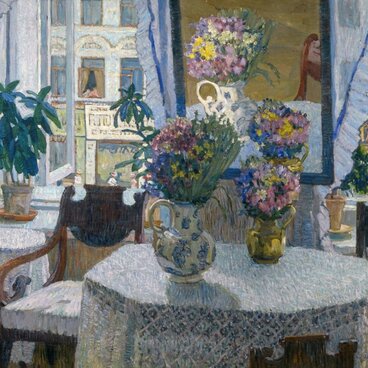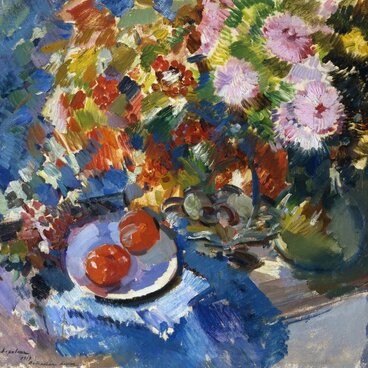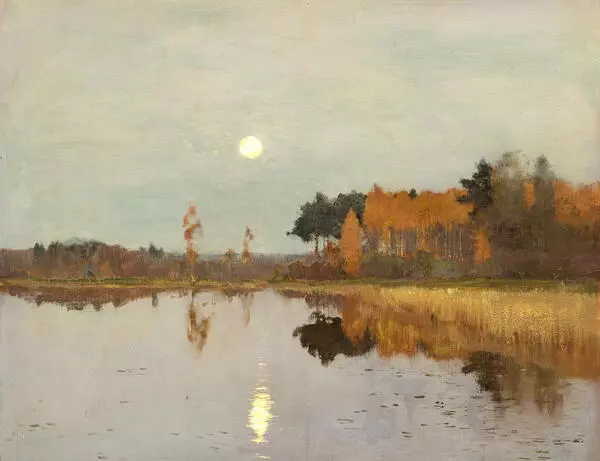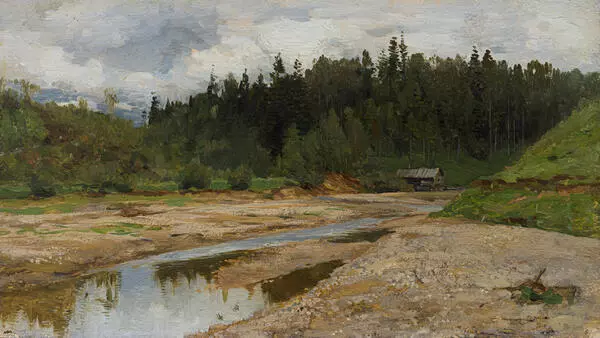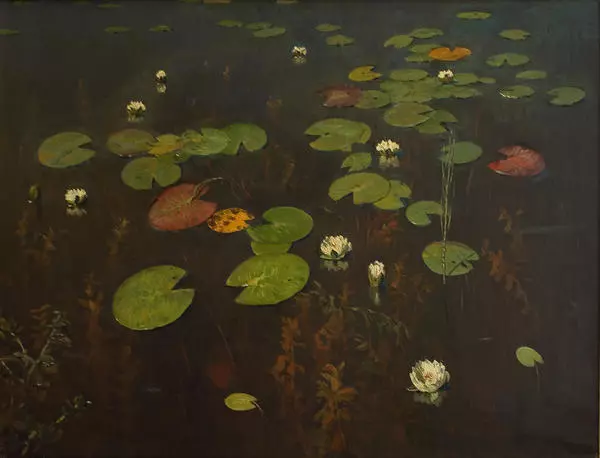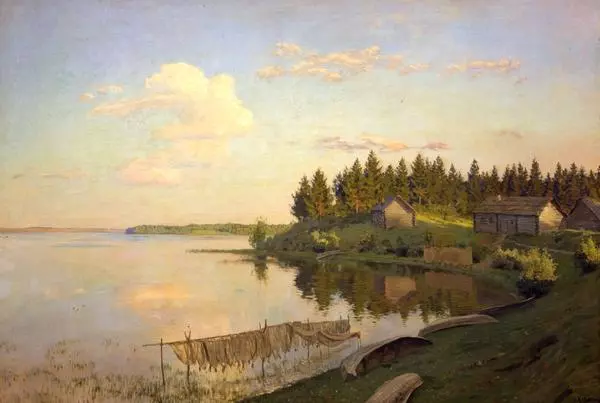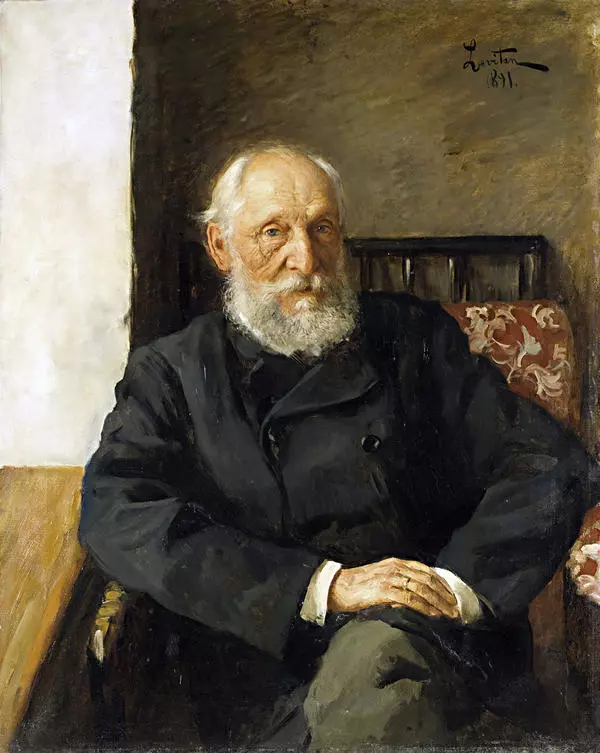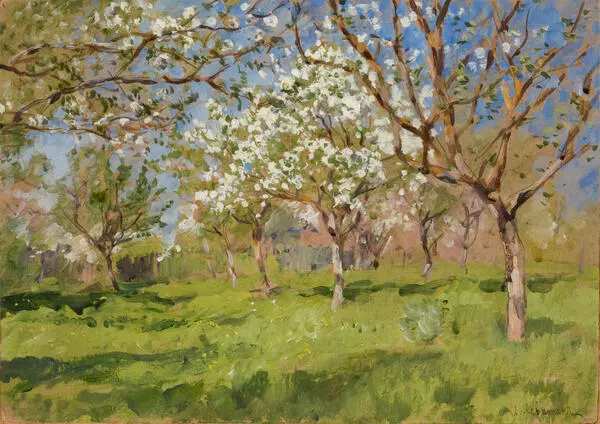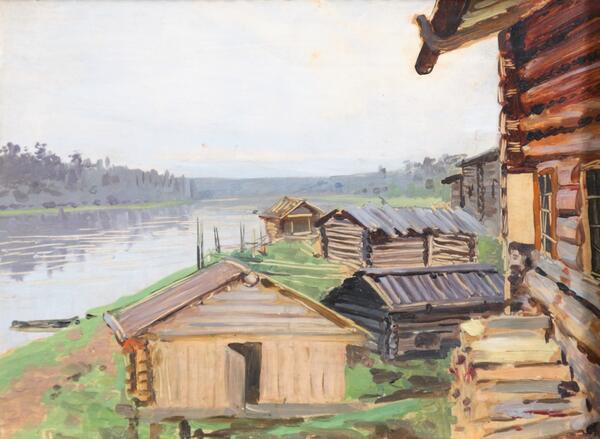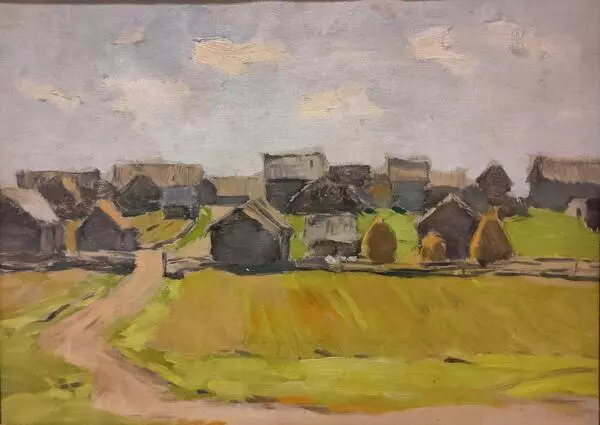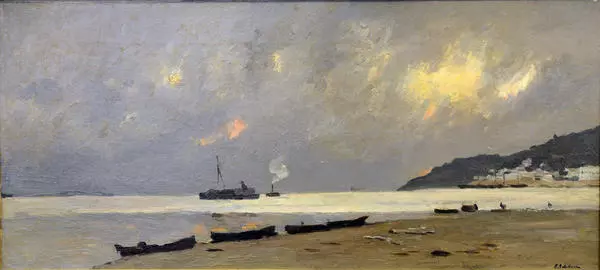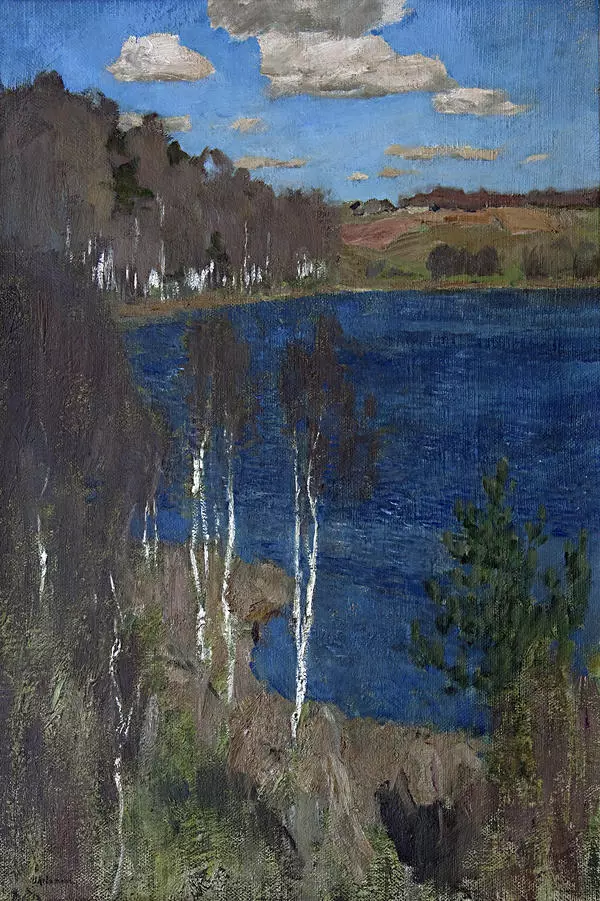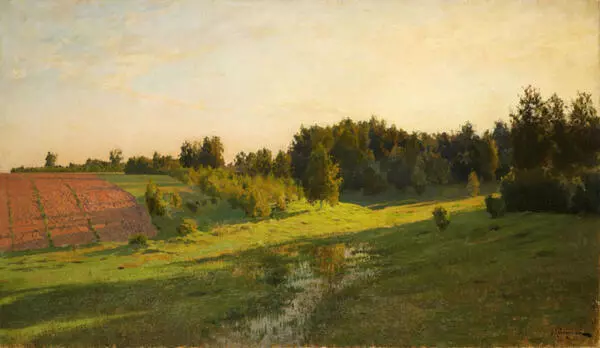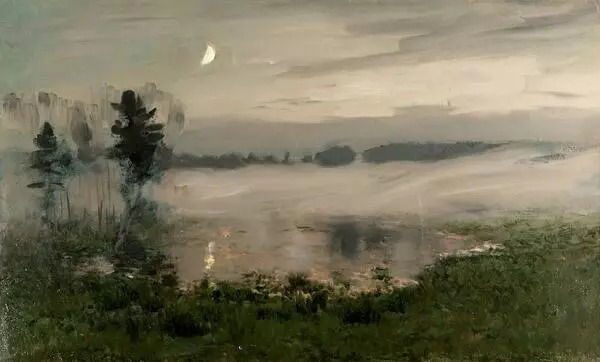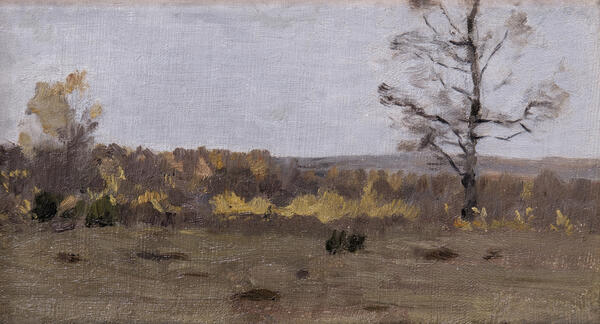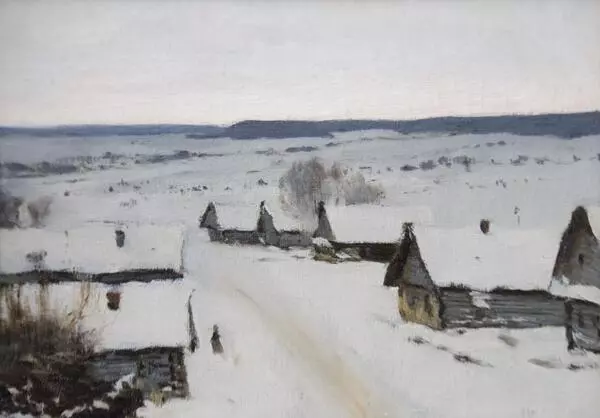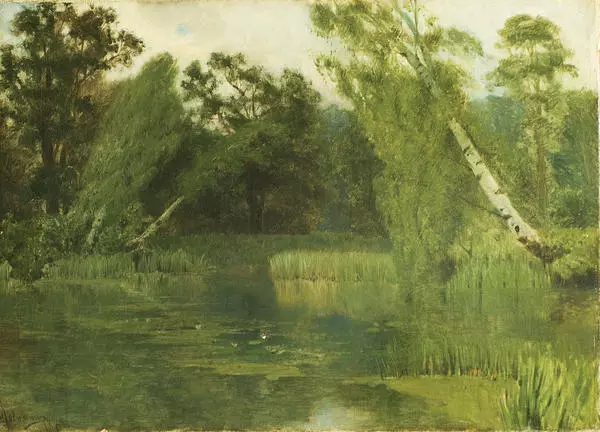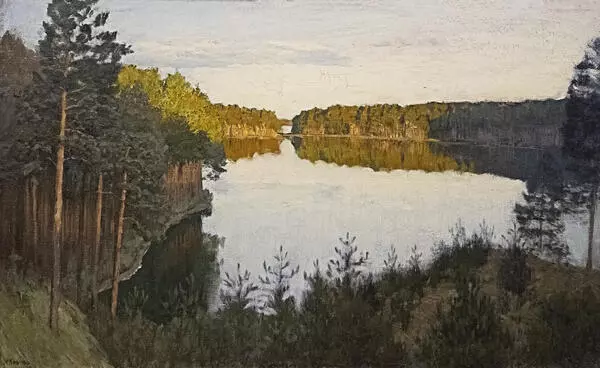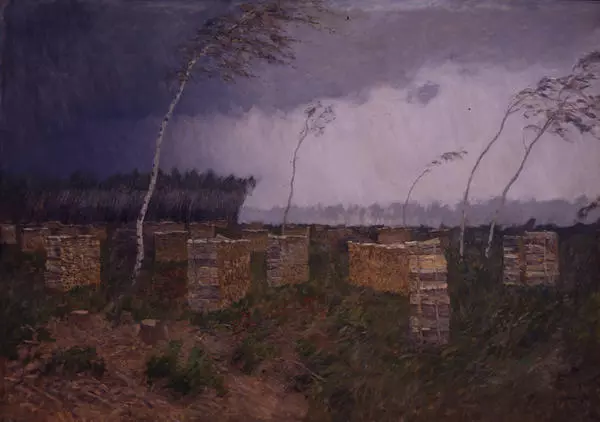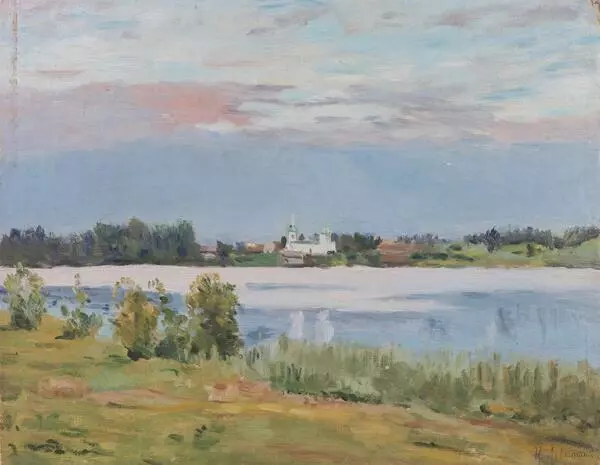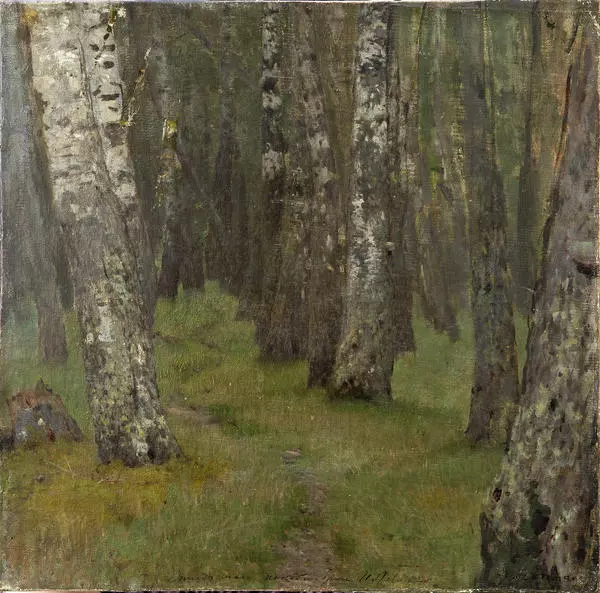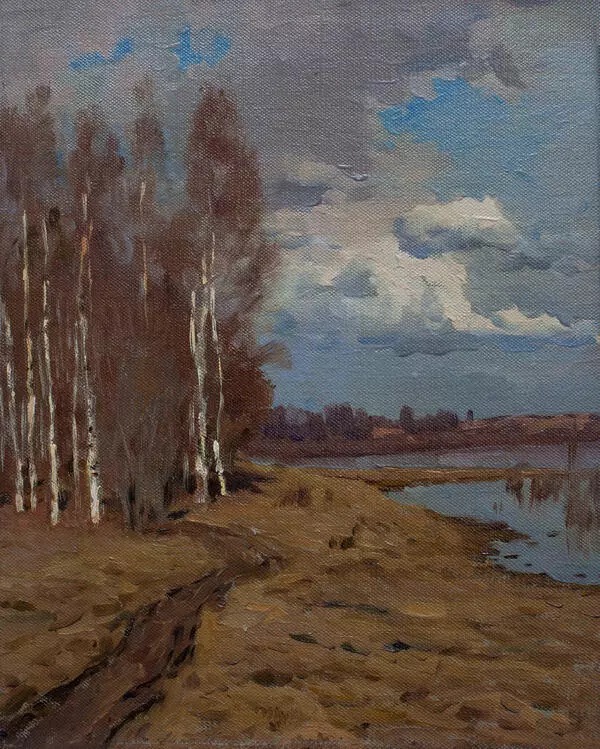The painting “On the Volga” displayed in the exhibition of the Sevastopol Art Museum belongs to the early period of Isaac Levitan’s work. In this small study, there is no philosophical or complex literary associativity characteristic of Levitan’s statement paintings; nor is there yearning and suffering particularly pronounced in the master’s early works.
With no sunlight, it would seem that natural colors “did not sound” in nature, yet the artist artfully managed to “hear” them and create a huge water space with a steamboat and a vast anxious sky. Space makes the basis of the image of this landscape. At the time, Isaac Levitan was fascinated by plein air painting, strove to study and more accurately convey the light and air environment, used novel coloristic discoveries. He was able to perfectly combine the subtle nuances of close-valued shades of silver-gray colors. Despite the fragmentary composition of the painting, the artist was able to outline and capture the movement of flowing water, which brought notes of something epic to Levitan’s painting as early as the 1880s.
An outstanding landscape painter, master of “sentiment landscape”, Isaac Levitan definitively established the Russian national landscape as a subject of art in its own right. He worked very much in plein air, and captured the changing faces of his native nature in his works. The paintings that brought broad fame to Levitan were the landscapes painted on the Volga during his creative trips there. In his first visit to the Volga in 1887, the artist failed to find “contact” with the river that seemed to him to be “dreary and dead”. “I was extremely disappointed, ” the painter wrote to his friend Anton Pavlovich Chekhov. However, in the winter of 1887–1888, he again and again returned in the studio to the Volga works, “fine-tuned” the sketches started outdoors, making additions and adjustments. And in the spring, Levitan, in the company of his artist friends Alexey Stepanov and Sophia Kuvshinnikova, returned to the Volga and what he saw was not “a weeping, ugly, harsh river, ” but a river full of majesty, calm and beauty, which he had not understood and failed to accept during the previous visit.

